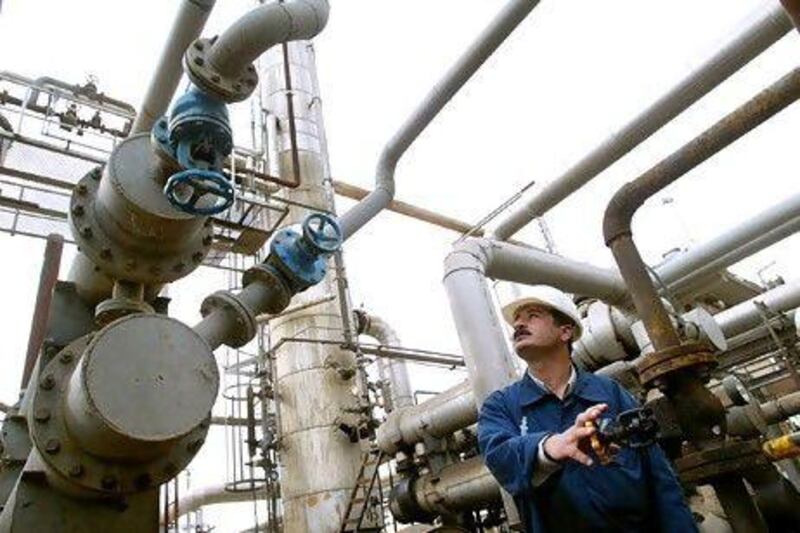It had been coming. For months, international oil companies had been sniffing around the Kurdish region in northern Iraq, weighing the option of investing in one of the last great frontiers in the world of hydrocarbons.
The major companies conducted such activity under the radar, and it was picked up only by rivals, government officials and other players such as oil and gas lawyers active in the country.
Then in September, Tony Hayward, the former BP chief executive who had to clear his desk following the Deepwater Horizon oil spill disaster in the Gulf of Mexico, announced his industry comeback by taking a multibillion-dollar gamble on Iraqi Kurdistan. Vallares, the investment company he set up with some rich backers, bought into Genel Energy International, one of the mid caps operating in Iraq's semi-autonomous north.
Nevertheless, ExxonMobil's agreement to explore six blocks in Iraqi Kurdistan, confirmed by Kurdish officials over the weekend, came as a surprise, as the company has a lot to lose should it have miscalculated the central government's reaction.
Baghdad does not recognise the contracts signed between the Kurdistan regional government (KRG) and oil companies operating in the north. This amounts to a denial of some proportions, as the majority of the 50-odd companies active in Iraq ply their trade in the Kurdish region. In terms of investment, these quasi-sanctions have worked, however, as the bulk of money that has gone into the Iraqi energy sector was ploughed into the south of the country by the giants of the oil industry.
ExxonMobil, the world's largest company by market capitalisation, is one of them, having won the contract to develop the massive West Qurna field west of Basra together with Shell, a US$50 billion (Dh183.65bn) project. The majors active in Iraq seemed unwilling to venture north for fear of losing their concessions in the south.
The central government had explicitly warned it would punish such a transgression, and backed up its words with action when it blacklisted the US exploration and production firm Hess, preventing it from bidding in Iraq proper after it had entered a contract with the KRG.
Exxon's defiance will put Baghad's position to a sterner test. While the oil company has much to lose, the Iraqi government is in a weak position. Should it throw ExxonMobil out of West Qurna 1, it risks big delays to the development of the world's second-largest oilfield, as well as dampening Iraqi-US relations.
In reality, the US company is unlikely to have undertaken what is more than a moderate gamble. "Exxon is a sophisticated player, they are willing to take risks, but they are calculated risks," said John Tottie, an oil and gas analyst for HSBC.
There are increasing noises that signal willingness by Baghdad to reach an agreement with the Kurds. Yesterday, Adal Barwari, an adviser to Nouri Al Maliki, the prime minister, told Radio Free Europe the government had reached a tentative agreement on exploration and revenue with the KRG.
This will be a crucial step for oil companies in the north, as the payments they now receive are made through the central government, cover only the cost of production and are patchy at best.
In addition, Bloomberg News reported that talks between Mr Al Maliki and Barham Salih, the KRG leader, ended the risk that foreign companies would be stripped of oilfield projects as punishment for signing contracts in the Kurdish-controlled north. Resitance to such a move is still in evidence: over the weekend the central government issued an angry rebuttal to a story that suggested it had approved the Exxon deal.
But in spite of the uncertainty, the Kurds will be optimistic.
Kurdistan is "one of the least explored hydrocarbon regions globally. The lack of seriously big players was one factor holding development back.
First Vallares, and now ExxonMobil have been a missing piece in the puzzle. Now you have the potential of billions being invested," Mr Tottie said.
twitter: Follow and share our breaking business news. Follow us





